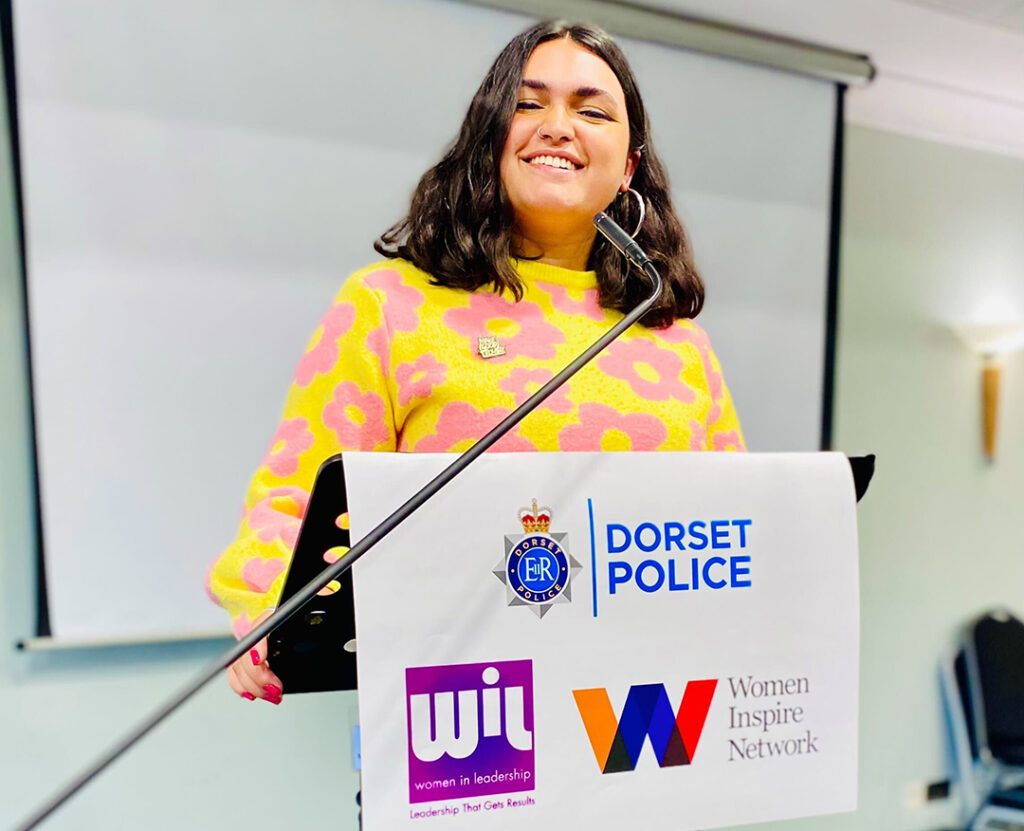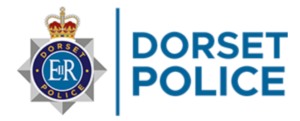Hello! This is the first in a series of monthly blog posts called Make Good News. It looks at the issues affecting young people that make the news, with an emphasis on making good – so we’ll add practical tips and advice for young people and families.
This month we cover:
- A brilliant way to understand autism
- A worrying rise in pupil absences
- Issues with mental health provision
- Oversubscribed SEND schools
- What you can do to counter toxic hate speech
- The great news that in London, every primary school child is to get free school meals from September
- The Power of Courage: Women in Leadership conference – Make (Good) Trouble’s Lola speaks about young people, safety, trauma, and the police
But I’ll start with Chris Packham’s brilliant new series about autism, Inside Our Autistic Minds on BBC Two and iPlayer.
Inside our Autistic Minds
I watched the first episode of this incredibly moving documentary last night. It helps us to understand the experiences of autistic people, and how they see the world.
Further reading
If you want to understand more about autism, there are a couple of great books I can recommend. Journalist and author Steve Silberman’s Neuro Tribes is a real page-turner and gives us a historical view of research into autism and how parents of autistic children fought to get help for their kids. And Temple Grandin, who has autism, has written The Autistic Brain which shows us how her brain is wired differently (with her incredible brain scans!), and talks about the impact that her autism has had on her life and career.
You can also find more resources on our Help page: Autism
170,000 pupils missed more than half of their sessions last term
Persistent absence from school is becoming a huge problem, and more so for disadvantaged children. It’s possible that this issue has been exacerbated since the pandemic.
There are calls for schools to send more personalised messages about pupil absences to parents to help bring young people back into school.
Where to get help:
There’s a really comprehensive article by Young Minds about school anxiety and refusal with tons of practical advice and tips.
Rise in demand for mental health services “under increasing pressure”
The huge rise in demand for mental health services (up by 44%) isn’t being met by the 22% rise in NHS staff being employed to deal with it. The National Audit Office’s report says that 8m people with mental health needs are not in contact with NHS mental health services.
The Department for Health & Social Care and NHS England “acknowledge that it will now take longer to achieve some of the existing commitments following the COVID-19 pandemic, amid signs of a large rise in mental health conditions, particularly among young people. Over the next few years, demand for mental health services will continue to significantly outstrip provision, putting pressures on patients, staff and people trying to access services”
The number of 17-19 year olds with a probable mental health disorder has risen from 10% in 2017 to 26% in 2022.
The report goes on to say that “NHS mental health services are under continued and increasing pressure and many people using services are reporting poor experiences. The Care Quality Commission has raised concerns about the ‘gridlocked’ health and care system, and particularly about children and young people’s mental health services … Our interviews with stakeholders highlighted that some groups had poorer experiences accessing or using services, including children and young people, people from minority ethnic groups, LGBT people, and people with more complex needs or more than one diagnosis.”
Where to get help:
It seems that charities and community organisations will be needed to step in to help plug the growing gap in provision. You can find a list in our Help and Advice pages. If we’re missing any useful links or subjects, please let us know and we’ll add them in!
Over half of SEND schools oversubscribed
New BBC research has found that 52% of Special Educational Needs and Disabilities (SEND) schools are oversubscribed. It’s putting huge pressures on already stressed parents trying to find a place for their child in a SEND school.
A new BBC documentary called SEND Help (23 mins) tells their stories. The amount of time, paperwork, administration and costs parents are having to deal with is unacceptable.
Anne Longfield, the Chair of the Commission for young Lives told BBC Breakfast that “the system is under resourced and broken.” She later tweeted, “we are writing off the educational chances of some children because the system is broken.”
Where to get help:
Action for Children has advice on getting support for a child’s special educational needs. They have a lot of good articles for parents of children with SEND on their website.
How do you talk to young people about toxic online views?
I came across this brilliant piece of advice from a 17-year-old about how to talk to your young person about Andrew Tate. If you missed the news, Tate is a self-styled online influencer who peddles hate speech and misogyny. His popularity has worried many teachers and parents who are seeking information about how to talk to young people, and boys in particular, about harmful online content.
The NSPCC’s policy officer, Hannah Rushen said: “Viewing such material at a young age can shape a child’s experiences and attitudes, resulting in further harm to women and girls in and out of school and online.”
In a 2021 review, girls reported “sexual harassment and online sexual abuse, such as being sent unsolicited explicit sexual material and being pressured to send nude pictures (‘nudes’), are much more prevalent than adults realise”and that “the frequency of these harmful sexual behaviours means that some children and young people consider them normal.” (Ofsted’s 2021 review of sexual abuse in schools and colleges)
What you can do
There are quite a few articles out there with advice on how to talk to young people about Andrew Tate, and how to counter his toxic, misogynistic views. By far the best is from 17-year-old Isaac Ohringer who wrote in a letter to The Guardian:
“As a 17-year-old, I can see that my peers who support him often feel attacked if a teacher tries to engage them in a conversation about him... While open conversation is the best way forward, teachers and parents need to have frequent discussions with their sons or students on related topics (such as consent, as stated in the article) before they talk directly about Tate. I have noticed that teachers like to jump straight to the topic after overhearing conversations in corridors. Parents can often do the same at home. This reactive approach means the topic is covered too quickly and too soon. Teachers and parents need to build towards the conversation on Tate incrementally to ease teenagers into feeling able to express themselves. Parents and teachers cannot just say “this is a safe space”, they need to prove that this is true.“
A summary of some of the better advice for parents is:
- Be informed – so look at what they’re watching or reading on social media and understand what the debates are.
- Choose the right time to talk about the subject (our go-to is to be doing something else at the time like when you’re going somewhere in the car or cooking together).
- Ask non-judgemental questions and listen to what they have to say.
- And keep it as an open two-way conversation. Opening up dialogue is the key to them feeling listened to, and to getting them
One of the best we’ve found is this one from Votes for Schools which talks about helping disenfranchised young boys and men to find alternative communities to feel welcome in. “You have to remember that the issues that these boys are dealing with are real and that these groups are providing a sense of solace and understanding. Purely demonising them will not help. To remove them from a community, we need to welcome them into another one. Show them that hate and anger aren’t long-term plans.”
Free school meals for every primary school child in London
The news that every primary school child in London is to get free school meals from September and for the next academic year drew a big cheer from us all at Make (Good) Trouble. We’re hoping this is just the start and will be rolled out nationally soon. The inclusion of all pupils means that there won’t be any stigma attached to getting free school meals.
Impact on Urban Health commissioned a study on free school meals which found that “free school meals have long been contributing significant and lasting benefits to individuals and society. The research shows a positive impact on educational attainment, mental and physical health and productivity improvements over the short, medium and long-term.” (2022)
Lola speaks about the teen brain and violence against women and girls at a Police conference
Make (Good) Trouble’s production assistant and young reporter, Lola Ray, visited a The Power of Courage. Women in Leadership Conference last week. Lola spoke alongside senior leaders from Dorset, Avon & Somerset, Cornwall, and Gwent police forces, and a number incredible speakers including Chief Petty Officer Kate Louise Nesbitt MC, Debbie Simpson QPM, and Major Tim Peake.
She told the conference, “teens are more likely to take more risks and have poor impulse control. This can also be heighted if a teen has any childhood trauma. I think it’s so important to understand this. It makes me understand why teens act the way they do.”

She spoke movingly about her experience of being the victim of a racial attack when she was younger and how that had affected her life. “Even though this happened almost 10 years ago I still find it really hard to talk about but I think it’s important to share my story so people understand the impact trauma can have on a young developing teen,” she said.
Lola showed three animated stories that included the voices of young people talking about trauma, safety, and how young people feel when they interact with the police. She told the conference, “97% of young women in the UK have been sexually harassed .… How safe are our streets for young people? What are the different threats perceived by young women, men & the LGBTQ community? What can services like the police do to help us stay safe?”
You can listen to our episode of Raising Teens: Safety in the City on BBC Sounds
Visit our Help & Advice page on Safety for links to organisations that can support young people.

